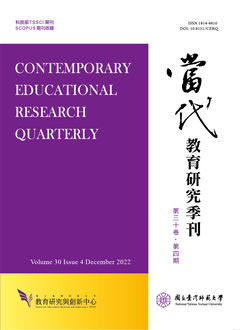

Optimizing the Design and Utility of Large-Scale Education Databases
2015 Special Issue of the Contemporary Educational Research Quarterly (CERQ)
Over the past few decades, more and more large-scale databases have been developed. Those databases are of various scopes and nature, including longitudinal studies of students at various levels of education, national and international assessment of student learning process and outcomes, integrated institutional data system, national surveys, and cross-agency collaborative data links. Those databases in general provide comprehensive and high-quality data, enabling researchers to do many in-depth research and evaluation studies. They have undoubtedly created a new frontier in the field of educational studies.
However, those databases are not cheap. It takes a lot of resources and efforts to acquire the state-of-art information. To be cost effective and highly valued, such databases must aim to optimizing their design to yield significant amount of valuable data, and the data should also be widely disseminated to realize their full potentials and benefits. The question then is how to achieve this goal. We would like to compile the knowledge and experience researchers have gained from the past and to suggest what could be improved in the future.
This special issue is thus intended to publish papers that present the best practices for the development of large-scale databases and for the dissemination, analysis and applications of the databases. Some topical issues of interest are suggested below:
1. Why are large-scale databases needed for educational research and evaluation?
2. Factors considered in developing a specific longitudinal study (e.g., a case study of High School and Beyond)
3. Issues and opportunities of integrated institutional database (e.g., IPEDS)
4. An example of cross-agency cooperation to establish data links
5. Integration of quantitative and qualitative data for assessment and research
6. Educational policy implications of a national assessment system (e.g., NAEP)
7. Methodologies for analyzing longitudinal databases
8. Dissemination strategies for large-scale databases
9. Building a community of users of large-scale databases
10. What have we learned from the international studies (e.g., TIMSS, PIRL)
11. Government's roles in supporting national education databases
12. Converting research findings into actions in the school education
Full paper submissions are due by April 30, 2015. The manuscript can be submitted in Chinese or English. The full manuscripts will be prepared in accordance with CERQ's Guidelines for Authors and subject to double-blind review based on the standard CERQ manuscript review criteria as well as relevance to the special issue. Full papers submissions must be done via Online Submission system (http://ojs.lib.ntnu.edu.tw/index.php/cerecerq/index). The results will be made available to authors on or before July 30, 2015, and they will have to make revisions in light of the reviewers’ feedback in 21 days. Accepted papers will be published in the December 2015 special issue of CERQ. For more information, please contact the Guest Editor at cerecerq@ntnu.edu.tw
Important Dates
Full paper submission deadline: April 30, 2015
Notification of first decision: July 30, 2015
Notification of final decision: September 30, 2015
Guest Editor
Samuel S. Peng, Ph.D. National Tsing-Hua University, Taiwan
Managing Editor
Haw-Jeng Chiou, Ph.D. National Taiwan Normal University
Fur-Hsing Wen, Ph.D. Soochow University, Taiwan

本著作係採用創用 CC 姓名標示-非商業性 3.0 台灣 授權條款授權.
本刊國立台灣師範大學教育研究與創新中心
106台北市和平東路一段162號 | 電話: 02-7749-3670 | E-mail: cerecerq@gmail.com
教創中心 | 師大 | 電子報 | 線上投審系統
本刊由國家科學及技術委員會人文社會科學研究中心補助經費
© 2014 CERI-NTNU
